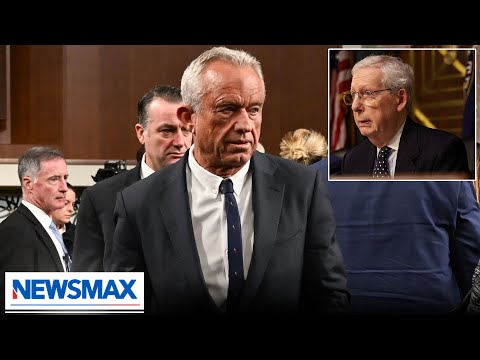In a significant political development, Robert F. Kennedy Jr. has been nominated to serve as the Secretary of the Department of Health and Human Services (HHS). Following a nail-biting vote in the Senate, Kennedy garnered support from 52 senators while 48 voted against him. This vote largely split along party lines, except for one notable Republican senator, Mitch McConnell, who initially stirred up some anticipation with his possible dissent but ultimately voted against Kennedy’s nomination.
McConnell’s opposition is particularly compelling given his personal history with vaccines. Having survived childhood polio, he is a vocal advocate for vaccines, which he believes have saved countless lives. His statement serves as a reminder of the scientific advancements that have been made over the years. He emphasized that someone leading a health agency should affirm the effectiveness of vaccines without any reservations, especially following the success of Project Warp Speed. This only adds a splash of drama to an already heated nomination process, where the stakes are high and the implications for public health are profound.
On the flip side, some Republicans have voiced cautious support for Kennedy, suggesting that he might bring necessary transparency to HHS. They argue that his intention to present scientific research that’s often overlooked could benefit the nation. While skepticism about his prior comments on vaccines looms like a dark cloud, Kennedy has assured party members that he aims to build trust and unity within the public health community instead of fueling further doubt. The hope is palpable that he will prioritize addressing chronic diseases, an issue both parties appear eager to tackle.
Interestingly, Kennedy is entering a complex political landscape where the parties are ever-ready to debate not just vaccines but also health policy reform. There seems to be a rare, bipartisan desire to improve the nation’s health systems—something that might allow Kennedy to navigate the turbulent waters of his new role. Both sides of the aisle have noted that support hinges on his performance and commitment to making real changes within the agency, emphasizing the need for accountability and cooperation.
As Kennedy prepares for his confirmation, it appears he has a thin thread of goodwill to walk on, especially with dissent among even his fellow Republicans. The enthusiasm surrounding his nomination may not be universal, but there’s a palpable awareness that his actions will impact millions of lives in the coming years. With the specter of increased scrutiny hanging overhead, all eyes will be on him to see if he can deliver on the promises of transparency and progress that have been promised.
While other nominees have advanced through Congress with little pushback, Kennedy’s nomination has certainly taken center stage, showcasing the larger battle over trust in public health amidst a backdrop of contrasting opinions on vaccines and chronic disease management. As the Senate gears up for more votes this week, the landscape continues to shift. If Kennedy can manage to navigate this precarious position, he could pave the way for a more collaborative effort in the realm of American healthcare. Whether or not he can indeed foster such cooperation remains to be seen, but one thing is certain—his journey to the top will be anything but ordinary.



